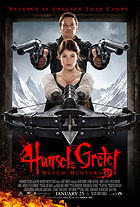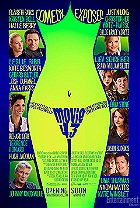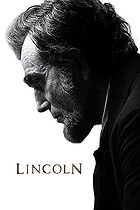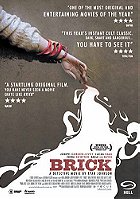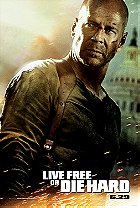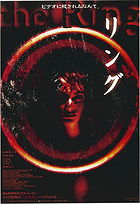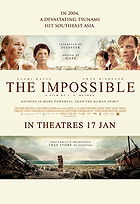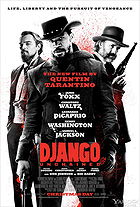There is little doubt that the story behind the killing of Osama bin Laden will be told and retold across multiple motion pictures in the years to come. Directed by Kathryn Bigelow, 2012's Zero Dark Thirty is the first cinematic retelling of the event, and it's such an enthralling and well-made feature film that there's probably no point making another movie covering the same ground. Zero Dark Thirty - which is a reference to the military term for half past midnight, when bin Laden's compound was stormed - is an absorbing account of the meticulous investigation to find the suspected terrorist, and it will prove to be a gratifying watch for anyone with the patience to stick with it. The real strength of Bigelow's film is its plausibility; without exaggerating the truth, Bigelow has created one hell of a potboiler, a classy, gritty, dense and sumptuous thriller welcomely free of melodrama.

To set the tone, Zero Dark Thirty commences with a prologue featuring real-life recordings of 9/11 victims asking for help. It's a chilling way to open the film, yet it's necessary, as it establishes the motivation for everything that's about to occur and it reiterates the true horror of 9/11. Arriving in Pakistan two years after the tragedy, young CIA analyst Maya (Jessica Chastain) meets fellow agent Dan (Jason Clarke) who specialises in torturing suspects. Dan eventually comes up with a few leads, beginning an almost ten-year odyssey for Maya as she pieces together information and tries to track down Osama bin Laden. As the years go by, breakthroughs grow scarcer, and Maya's irritation is heightened, especially with suicide bombings continuing to claim lives in the region. Eventually, however, Maya finds a promising lead when she discovers a fortified compound with secretive inhabitants.
Fresh off the success of The Hurt Locker, Bigelow began setting up a movie about the ongoing, increasingly frustrating hunt for bin Laden, and she was close to entering production. Reportedly, the film was intended to end on a downbeat, inconclusive note, with bin Laden disappearing after the battle of Tora Bora, potentially never to be seen again. But Osama's sudden death rendered the concept irrelevant, compelling the filmmaker to rethink her movie. Bravely, it seems Bigelow essentially made the film she initially wanted to make, incorporating the operation that led to bin Laden's death but not letting the happy ending change the story's tone or catharsis. Zero Dark Thirty follows Maya for years, watching her pursue leads, chase red herrings, encounter dead ends and deal with her superiors, all of which is glimpsed in excruciating detail. It's laudable for Bigelow and writer Mark Boal to really dig into the ins and outs of this agonisingly prolonged investigation, but it does not always translate to an engaging viewing experience, and sometimes it's hard to discern what's happening and why. Nevertheless, there is a lot to admire in the film's construction, specifically in regards to the lack of bias and judgment. There's no gung-ho military-style propaganda here or any political agenda; Boal's script simply shows us what happened and asks us to draw our own conclusions. It's refreshing.

Zero Dark Thirty catapults to greatness in its final hour, when Maya and her team locate the house which may or may not be Osama's current hideout. We all know how it ends, but the specifics are hazy to the average viewer, hence it's riveting to watch the politics play out as Maya awaits the green light for the operation with heightened irritation. The climactic raid on the compound is one of the most thrilling set-pieces of the year, thirty minutes of edge-of-your-seat tension as the SEAL team scrupulously move from room to room. Ultra-realistic military operations are not often seen in films since they're unexciting, but Bigelow makes the assault both incredibly realistic and every bit as engrossing as any action movie. Another huge strength of Bigelow's is her ability to stretch a dollar. Zero Dark Thirty was produced for a scant $40 million, yet it looks far more expensive, with spot-on costume design and sets (the recreation of bin Laden's compound is remarkable), as well as the superlative cinematography by Greig Fraser. Bigelow stages a number of scenes depicting suicide bombings, and they're terrifying due to their staggering immediacy.
Chastain is a revelation, carrying the film with incredible acting prowess that puts veteran actors to shame. Chastain is often glimpsed in supporting roles, but Zero Dark Thirty foregrounds the actress, and it's her most impressive work to date. It must be stressed that the role of Maya was not a real-life person; she's a fictionalised composite of a number of real-life CIA analysts who met with Mark Boal and helped in his research. Maya admittedly lacks depth and we never get a sense of her life outside the workplace, but that seems to be on purpose since she has given everything up for her job and only realises this once she's met her goals. Fortunately, the supporting cast is strong all-round. Clarke is a terrific presence as Maya's colleague, and Kyle Chandler is a perfect fit for Maya's station chief. Mark Strong is also present here, remarkably playing a non-villainous role and doing a top-notch job. Meanwhile, James Gandolfini is a believable bureaucrat, and Joel Edgerton makes the most of his limited screen-time as a member of SEAL Team Six. Even Scott Adkins shows up here for all of five minutes.

Although Zero Dark Thirty begins with a title explaining that it's based on first hand accounts of true events, it's unclear how accurate this portrayal of the manhunt truly is. It would therefore be smart to accept the film as a dramatisation of real-life events, rather than a documentary. And as a dramatisation, Bigelow's feature excels. It will be interesting to see where Bigelow goes next, and see if she continues to pump out Oscar-worthy motion pictures.
8.2/10
 Login
Login
 Home
Home 183 Lists
183 Lists 1674 Reviews
1674 Reviews Collections
Collections
 0 comments,
0 comments, 